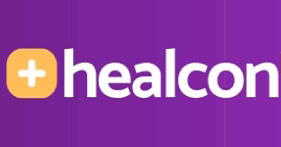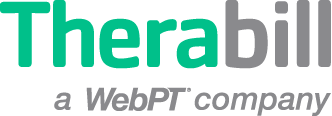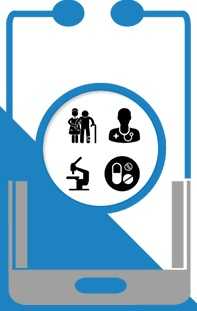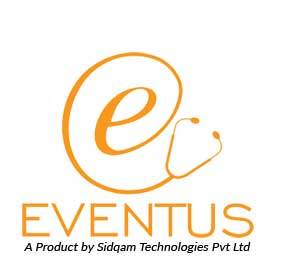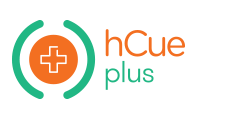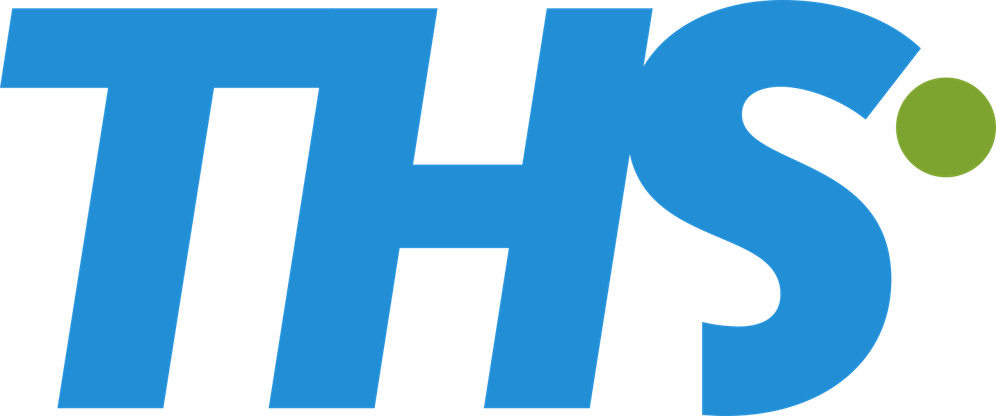Yes, most modern clinic management software is designed to be available from a variety of devices and platforms. This enables healthcare providers to quickly access patient information and handle appointments, prescriptions, and other critical duties from their desktop, laptop, tablet, or smartphone. Some software also has dedicated mobile apps for increased convenience. However, it is always a good idea to check with the provider to guarantee device compatibility and correct syncing.
List of 20 Best Clinic Management Software
Healcon Practice is a practice management solution for doctors. With its intuitive design and comprehensive features, it simplifies all clinic operations, such as electronic medical records, e-Prescriptions, scheduling, drug management, treatment pla...Read More Healcon Practice
Therabill is a and affordable therapy management software designed to streamline billing, scheduling, and documentation for therapy practices. Our user-friendly cloud-based platform empowers you to easily document sessions for behavioral health, ment...Read More Therabill
Conexia is a leading risk management software that collaborates closely with clients to enhance results and lessen expenses. By prioritizing operational excellence, we strive to implement top-notch procedures and cutting-edge technology, leading to s...Read More Conexia
ClinaNG is a clinic management software designed by doctors and healthcare technology professionals. Utilizing a cloud-based system, ClinaNG revolutionizes your clinic into a modern, paperless operation that can be accessed from any device at any tim...Read More ClinaNG
KiviHealth is a Clinical Management Software that simplifies and automates medical operations for over 5000 specialized doctors. Its user-friendly interface offers tailored features for various specialties, including complete Clinical Administration,...Read More KiviHealth
Easy Clinic is a premier clinic management software designed for Consultant Physicians, Specialists, OPD Clinics, and Clinics with multiple staff. It offers customizable features to cater to your specific needs, specialty, and clinic workflow. With E...Read More Easy Clinic
Eventus solution for a, efficient and tech-savvy clinic. Revolutionize your clinic and hospital management with our advanced digital platform. Embrace the technological advancements in the medical industry and elevate your practice to new heights. St...Read More Eventus
G Health-Sys is a healthcare management solution for your facility. With its integrated marketing features, our system streamlines your hospital or clinics operations for enhanced growth and success. From small clinics to large healthcare organizatio...Read More G Health-Sys
Halemind, a Electronic Health Record and Hospital Management System. Experience streamlined operations and real-time data for enhanced efficiency in your daily healthcare operations. With its advanced connectivity, Halemind offers invaluable insights...Read More Halemind
hCue Clinic Management is a trusted and user-friendly cloud-based software specifically designed for doctors in India. Our advanced platform enables seamless appointment scheduling, increased visibility, and effective communication with pharmacies an...Read More hCue's Clinic Management
Virgin Plus - a complete Clinic and Hospital Management software catering to the needs of healthcare centers. This user-friendly solution simplifies medical practice for doctors of all technical backgrounds. With an intuitive interface, streamline yo...Read More Virgin Plus
Invoay SimplePOS solution for all your retail management needs. From appointment scheduling and staff management to payments and customer retention, this comprehensive software simplifies every aspect of your business. Elevate your operations, attrac...Read More Invoay SimplePOS
OpenEHR is healthcare IT platform designed to seamlessly integrate patient data from different systems. Its flexible tools assist clinical professionals and reduce expenses. By enabling easy accessibility, interoperability, and reuse of data, OpenEHR...Read More openEHR
SYNTH MED solution for digitally revolutionizing your university and hospital operations. Experience enhanced patient care with our advanced suite, featuring Telemedicine for extended reach and PACS for streamlined radiology. Stay ahead of the dynami...Read More SYNTH MED
iHMS - a Hospital Management System designed to efficiently manage patient data. Our comprehensive solution simplifies data capture, manipulation, and reporting, allowing your facility to stay ahead of the competition. With iHMS, your hospital can en...Read More iHMS Hospital Management
Consentz – solution for your aesthetics practice. This comprehensive clinic management software is specifically designed to streamline operations and enhance patient satisfaction, all while increasing your revenue. With advanced features such...Read More Consentz
Saral-ProHims, the user-friendly Hospital Management Information System that minimizes training requirements for seamless operation. Its multi-location module allows for a centralized MIS, ensuring reliable data management. Optimize your hospitals fu...Read More Saral-ProHims
SkyVF - Hospital is a Hospital ERP system specifically developed for managing Clinics, Hospitals, and IVF facilities. Developed by a team of experienced medical experts and IT specialists, it provides the most comprehensive Hospital Management System...Read More SkyVF - Hospital
ePrognosis, a software solution that revolutionizes care services, streamlines workflows, and increases overall efficiency. Our fully customizable platform utilizes cloud technology and offers specialized applications to enhance the patient journey...Read More ePrognosis
Lifeline Dev solution for simplifying your lab operations. Our software seamlessly integrates with clinic management systems, eliminating the need for manual data entry. With compliance to the latest interface protocols, it can easily adapt to any cl...Read More Lifeline Dev
Learn More About Clinic Management Software
- What Is Clinic Management Software?
- What Are The Recent Trends In Clinic Management Software?
- Benefits Of Using Clinic Management Software
- Important Factors To Consider While Purchasing Clinic Management Software?
- What Are The Key Features To Look For In Clinic Management Software?
- Why Do Businesses Need Clinic Management Software?
- How Much Time Is Required To Implement Clinic Management Software?
- What Is The Level Of Customization Available In Clinic Management Software?
- Which Industries Can Benefit The Most From Clinic Management Software?
- Conclusion
What Is Clinic Management Software?
Clinic Management Software is a comprehensive digital solution that enables healthcare facilities, clinics, and hospitals to optimize and automate their daily administrative and clinical tasks. It is intended to handle and organize patient information, appointments, billing, inventory, and other critical parts of a clinic, so increasing the facility's overall efficiency and productivity.
One of the primary characteristics of clinic management software is its capacity to store and maintain patient records electronically, allowing healthcare providers to view and update patient information in real time. This eliminates the need for actual paper files while simultaneously ensuring the security and accuracy of patient data. In addition to patient data management, clinic management software includes scheduling capabilities that enable healthcare practitioners to manage and track appointments, lowering the risk of no-shows, missed appointments, and scheduling conflicts.
This ultimately leads to better time management and higher patient satisfaction. Billing and invoicing functions are also essential components of clinic management software. Automating the billing process allows healthcare facilities to streamline their revenue cycle, eliminate billing errors, and improve the clinic's overall financial health.
Furthermore, inventory management is a crucial feature of clinic management software. Clinics may effectively manage their inventory and ensure that important medical supplies are always available by utilizing services such as stock tracking, reorder alerts, and automated supply orders. Clinic management software also includes data analysis and reporting tools, electronic prescription capabilities, and connectivity with other healthcare systems including electronic health records.
What Are The Recent Trends In Clinic Management Software?
In recent years, there has been a substantial increase in the use of technology in healthcare, with clinic management software becoming an essential tool for optimizing operations. With the continually changing healthcare sector, clinic management software must stay up with the latest trends and innovations.
we'll go over some of the most recent trends in clinic management software that purchasers should be aware of before making a purchase.
1. Cloud-based Solutions: One of the most significant trends in clinic management software is the transition to cloud-based solutions. This enables remote access to patient data, increased collaboration amongst healthcare personnel, and lower IT expenditures. Clinics can also benefit from cloud-based software, which includes automatic updates and backups to ensure data security and compliance.
2. Artificial Intelligence (AI): Given the growing usage of AI in healthcare, it is unsurprising that it has found its way into clinic management software. AI-powered algorithms can assist with patient scheduling, resource optimisation, and even provide insights to improve decision-making. It can also help to automate administrative processes, giving healthcare providers more time to focus on patient care.
3. Telehealth Integration: During the COVID-19 pandemic, the use of telehealth services has increased significantly. As a result, several clinic management software now support telehealth integration, allowing for virtual consultations and remote patient monitoring. This trend is expected to continue even after the epidemic, as it provides convenience and flexibility for both patients and healthcare providers.
4. Mobile Access: Another emerging trend in clinic management software is the availability of mobile apps. Given the growing use of smartphones, these apps provide quick and easy access to patient information, appointment booking, and other functions. They also help healthcare providers who need to access patient data on the go.
5. Patient Engagement Tools: In today's digital age, people want their healthcare provider to deliver a flawless and streamlined experience. As a result, several clinic management software packages now include patient interaction features including online appointment scheduling, patient portals, and secure chat. These characteristics can improve communication between patients and healthcare practitioners, as well as the overall patient experience.
Benefits Of Using Clinic Management Software
Clinic management software is a game changer for the healthcare business. Its goal is to streamline and optimize everyday operations, improve patient care, and raise the clinic's overall efficiency. Here are the main advantages of adopting clinic management software, which make it a must-have for any modern medical practice:
1. Streamlines Appointment: Scheduling: Appointment scheduling is one of the most important features of clinic management software. It allows patients to arrange appointments online, decreasing staff workload and avoiding human mistake, which can result in double booking or missed appointments. This, in turn, improves the patient experience while saving time for both patients and staff.
2. Automates Billing And Invoicing: Clinic management software simplifies the process of preparing and handling bills and invoices. It can automate billing, track payments, and provide reports, allowing the clinic to better manage its finances. This saves time and decreases the chance of billing errors, resulting in improved financial management and increased income.
3. Simplifies Patient Data administration: Clinic administration software centralizes patient data so that authorized personnel can easily access it. This eliminates the need for paper records, lowering the danger of data loss or misplacement. Furthermore, it enables the easy retrieval of patient information such as medical history, test results, and treatment plans, thereby improving patient care.
4. Enables Efficient Inventory Management: Managing inventory in clinics that dispense medications or sell medical equipment can be a time-consuming task. Clinic management software makes this process easier by tracking inventory levels in real time and sending warnings when supply levels are low. This ensures prompt replenishment and prevents stockouts, which can impede patient care.
5. Improves Communication And Collaboration: Clinic management software enables staff members to communicate and collaborate more effectively. It allows users to communicate patient information, timetables, and tasks, which improves teamwork and coordination. This leads to improved patient care and a more efficient workplace.
Important Factors To Consider While Purchasing Clinic Management Software?
Clinic management software is an important tool for healthcare facilities since it streamlines administrative and clinical operations, increasing efficiency and improving overall patient care. With so many options available, purchasers may find it difficult to select the best software for their clinic. To help with this process, we've developed a list of key considerations to consider when selecting clinic management software:
1. Scalability: You must assess the software's scalability to guarantee that it can meet your clinic's rising needs. As your clinic grows, the software should be able to accommodate an increasing patient population, more clinicians, and a wider range of services.
2. User-Friendly Interface: The software's interface should be straightforward and intuitive, allowing your employees to easily navigate through numerous features and functions. A steep learning curve can slow software uptake and reduce productivity.
3. Integration Capabilities: Look for software that is compatible with your current systems, such as electronic health records (EHR) or billing systems. This will save time and effort in data entry while also reducing the possibility of errors.
4. Customization: Each clinic has distinct requirements, and the software should be adaptable to match those demands. This could include designing new forms, reports, or workflows to personalize the product to your specific needs.
5. Security And Compliance: Because healthcare data is extremely sensitive, software security and compliance are critical. To protect patient information, the software should have stringent security mechanisms in place and comply with healthcare regulations such as HIPAA.
6. Support And Training: Adequate support and training are required to facilitate a seamless transfer and efficient use of the software. Look for software that offers full training and devoted customer assistance to address any issues that may emerge.
7. Mobile Compatibility: With the growing usage of mobile devices, having software that works on various devices can increase flexibility and productivity. Look for mobile-compatible software that allows you remote access and management while on the go.
8. Cost: While cost should not be the only deciding consideration, it is critical to compare the software's cost to its features and capabilities. Consider not only the initial cost, but also any subsequent expenditures like as maintenance and support. Finally, investing in the correct clinic management software will help your clinic run more efficiently and grow. By taking these variables into account, you can make an informed selection and select software that is most suited to your clinic's requirements.
What Are The Key Features To Look For In Clinic Management Software?
Efficiency and accuracy are critical components of clinic management. Reliable clinic management software is vital for streamlining operations and improving patient care. However, not all software solutions are made equal, and navigating the market's different possibilities can be overwhelming. As a buyer, you must understand the important characteristics to look for in clinic management software so that you can make an informed purchase that best meets your clinic's needs.
Here are some key features to consider:
1. Appointment Scheduling: One of the most important aspects to look for in clinic management software is appointment scheduling. Patients should be able to easily book appointments online or through a mobile app. The software should also provide a calendar view that displays all appointments for the day, week, or even month, allowing clinic personnel to manage and organize schedules more easily.
2. Patient Records Management: Being able to store and maintain patient records is an important function of clinic management software. The program should provide a simple interface for entering and retrieving patient data, such as medical history, prescriptions, lab results, and appointments. It should also allow you to attach and access digital files like X-rays and MRI images.
3. Billing And Payment Processing: A complete clinic management software package should contain billing and payment processing capabilities. This includes invoicing, insurance claims, and payment collection, which helps clinics manage their money and reduce paperwork.
4. Inventory Management: For clinics that dispense medication, an inventory management component in the program is critical. It enables the clinic to track prescription stockpiles, receive low-stock alerts, and generate stock usage data, thereby preventing stockouts and lowering wasteful costs.
5. Integration With Other Systems: To increase productivity, search for clinic management software that can connect to other systems including electronic medical records, lab systems, and accounting software. This eliminates the need for human data entry and lowers the risk of errors.
6. Customizability And Scalability: Clinics have distinct requirements, and one-size-fits-all software may not be appropriate for everyone. Consider a software solution that enables customization and scalability. This allows clinics to add or remove features based on their individual needs, providing potential for growth.
7. Security And Compliance: As with all medical software, security and compliance are critical considerations. The clinic management software should include strong security features to secure sensitive patient data and comply with healthcare legislation such as HIPAA.
Why Do Businesses Need Clinic Management Software?
In today's fast-paced and highly competitive healthcare market, adopting technology to streamline procedures and improve efficiency is critical for businesses to succeed. Here's where clinic management software comes in. Clinic management software is a powerful tool that helps healthcare facilities manage their day-to-day operations more efficiently. These software systems include a variety of features and services, such as appointment scheduling, patient record administration, billing and invoicing, inventory management, and reporting.
One of the primary reasons that organizations require clinic management software is to improve organization and time management. Businesses can save a considerable amount of time and resources by scheduling appointments, storing patient information, and managing inventory all on the same platform. This enables healthcare providers to focus on providing great treatment to their patients rather than becoming bogged down in administrative responsibilities.
Furthermore, clinic management software promotes greater communication and collaboration within healthcare facilities. Patient information is saved and shared electronically, allowing healthcare providers to access it in real time, resulting in speedier decision-making and better collaboration between departments. Another significant advantage of employing clinic management software is the opportunity to improve patient experience.
Patients may easily access and communicate with their healthcare practitioner thanks to features such as online appointment scheduling and patient portals. This not only increases patient pleasure, but it also helps a firm grow its patient base. Furthermore, clinic management software facilitates financial management. Businesses that automate operations like billing and invoicing can decrease human error and assure correct and timely payments.
This might result in more revenue and better cash flow for a healthcare facility. Finally, with growing concerns about data security, selecting the correct clinic management software may help businesses secure the safety and confidentiality of patient information. These software solutions frequently have strong security features and adhere to all healthcare sector laws, such as HIPAA, to protect sensitive data.
How Much Time Is Required To Implement Clinic Management Software?
The time required to establish clinic management software varies according to the program used, as well as the clinic's size and complexity. However, as a general rule, the implementation phase can last anywhere from a few weeks to a few months. During the deployment process, the software provider will collaborate closely with the clinic to tailor the program to their specific requirements and workflow.
This may include migrating data from previous systems, configuring user accounts and permissions, and teaching employees on how to use the software efficiently. Clinics must allow enough time for the implementation process to enable a smooth transition and successful use of the software. It is essential that important stakeholders, such as managers and clinicians, be involved in the process to ensure their needs are satisfied and any possible concerns are resolved.
Clinics should also engage closely with their software vendor to create a realistic implementation timeframe and communicate any potential barriers or delays. While the deployment process may take some time and resources, the long-term benefits of employing clinic management software to streamline operations and improve patient care surpass the initial investment.
What Is The Level Of Customization Available In Clinic Management Software?
One of the most important elements to consider when selecting clinic management software is the level of customization available. Clinic management software is a digital solution that automates different administrative duties and improves the overall productivity of a healthcare facility. With the rising need for individualized and patient-centered treatment, clinic management software must provide a high level of personalization.
So, what exactly does customization mean in terms of clinic management software? Simply said, it refers to the capacity to customize the program to meet your clinic's individual demands and specifications. This means that the software should be adaptable enough to your clinic's specific processes and workflows, rather than requiring you to adjust your operations to accommodate the program.
The level of flexibility offered in clinic management software varies significantly between providers. Some software may provide minimal customization choices, but others may provide a wide range of complex options for complete customizing. At the very least, you should seek for software that allows you to adapt the user interface to your own preferences and needs.
This includes features like modifying the layout, color scheme, and adding or removing specific buttons or functions to facilitate navigation. Next, consider the flexibility to personalize data fields and forms. Clinics have varying data needs, and a good clinic management software should allow you to add, change, and delete data fields and forms as needed.
This ensures that you can collect and store all relevant patient information without restriction. Another important component of customisation is the ability to generate customized reports. Every clinic has different reporting requirements, and the software you choose should enable you to create specialized reports that provide useful insights into your clinic's operations.
This could include financial, patient, or inventory reports. In addition to these fundamental customization possibilities, some advanced software may allow you to customize clinical protocols, medical record templates, and even integrate with other third-party software or devices. It is also worth mentioning that the degree of customization may influence the overall cost of the product. More complex customization possibilities may come at a higher cost, therefore it is critical to consider your clinic's demands and budget while choosing software.
Which Industries Can Benefit The Most From Clinic Management Software?
Clinic management software is an effective tool for increasing efficiency and optimizing procedures across a variety of sectors. This program has a variety of functions such as appointment scheduling, patient record management, inventory monitoring, and billing, making it suitable for a wide range of healthcare settings. Whether you run a small private practice or a large specialized clinic, integrating clinic management software can significantly improve your operations.
1. Healthcare Facilities: The healthcare sector includes a variety of facilities such as hospitals, clinics, medical laboratories, and nursing homes. All of these establishments could benefit from clinic management software. These software tools can assist healthcare providers in scheduling patient appointments, tracking medical information, and streamlining billing procedures. Furthermore, clinic management software's reporting and analytics tools can provide significant insights into the facility's operations, resulting in enhanced decision-making and patient care.
2. Private Practices: Private practices, such as dentistry, chiropractic, and physical therapy offices, might tremendously benefit from using clinic management software. These software tools can help to automate and streamline administrative operations including appointment scheduling, patient communication, and billing. Clinic administration software frees private clinics from manual paperwork and administrative strain, allowing them to focus on providing great care to their patients.
3. Telemedicine Providers: Telemedicine has grown in popularity in recent years, thanks in large part to the proliferation of virtual healthcare services. Telemedicine providers can benefit substantially from clinic management software, which facilitates remote consultations and appointments. These software systems can also aid in the maintenance of electronic healthcare records, allowing clinicians and patients to communicate and share data more seamlessly.
4. Specialty Clinics: Specialty clinics, such as mental health clinics, dermatology clinics, and fertility clinics, have distinct requirements for administering patient care. Clinic management software provides configurable templates and features tailored to these individual specialties, allowing practitioners to organize appointments, treatment plans, and patient data more efficiently. By streamlining operations and enhancing communication, clinic management software can assist specialist clinics in providing better and more individualized treatment to their patients.
5. Governmental Healthcare: Facilities Government healthcare facilities, such as public hospitals and clinics, can also benefit from clinic management software. These facilities frequently handle a huge number of patients and must follow tight standards and procedures. Clinic administration software can assist with patient flow management, electronic health record storage, and efficient inventory and supply tracking. This can ultimately result in improved patient care and cost savings for these hospitals.
Conclusion
Finally, selecting the appropriate clinic management software for your practice will significantly increase efficiency and overall patient experience. Given the variety of options available on the market, it is critical to carefully analyze your personal requirements and budget before making a decision. Before purchasing any software, be sure that it includes key functions like appointment scheduling, electronic health records (EHR), billing and payment processing, and reporting capabilities.
Additionally, search for software that allows for customization to meet your practice's specific workflows and preferences. To guarantee a smooth transition and successful deployment, examine the software's usability as well as the availability of training and support. Take advantage of free trials and demonstrations to try out various software and choose which one best meets your requirements.
Furthermore, do not forget critical concerns like as data security and compliance with business requirements like HIPAA. Ensure that the software you chose has adequate safeguards in place to protect patient information and meets industry standards. Finally, examine the software's long-term costs, including any additional fees for upgrades or support.
It is critical to select software that is not only economical but also provides good value for the money. With these factors in mind, you can definitely make an informed selection about the finest clinic management software for your firm. Investing in the correct software can significantly improve clinic management, resulting in better patient care.
Clinic Management Software FAQ's
Can Clinic Management Software Be Accessed Across Multiple Devices And Platforms?
Is Clinic Management Software Future-Proof And Adaptable To Emerging Technologies Like Ai, Blockchain or Iot?
Yes, most modern clinic management software is meant to be future-proof and adaptable to upcoming technologies such as artificial intelligence, blockchain, and the Internet of Things. These applications are regularly updated and adapted to stay up with advances in the healthcare business. They can also integrate with other technology, making it easier for clinics to adopt new technologies and stay competitive in the ever-changing healthcare industry.
Is There A Free Trial Offered To Assess Clinic Management Software Before Committing?
Yes, many clinic management software vendors provide a free trial period so that potential clients can evaluate their program before making a purchase. During the trial, users can test out the software's features and functionalities to see if it satisfies their requirements. This is an excellent method to consider several choices and make an informed conclusion. Take advantage of free trial offers before committing to a specific software.
Does Clinic Management Software Offer Data Security Features And Meet Regulatory Compliance Standards?
Yes, clinic management software has data security safeguards to protect and maintain the confidentiality of patient information. It also adheres to regulatory standards such as HIPAA and GDPR to ensure data protection and legal compliance. This includes data encryption, access limits, and regular backups to prevent data breaches. This program ensures that your clinic's data is safe and secure.
Can Clinic Management Software Integrate Seamlessly With Existing Tools And Platforms?
Most clinic management software is designed to work easily with existing tools and platforms. This enables for a smooth transition without the need to totally rework your existing systems.
Clinic management software may simply integrate with your existing tools to expedite your workflow and enhance overall productivity, thanks to capabilities like data import/export, API interfaces, and compatibility with common platforms such as EMR and EHR. This also guarantees that all of your patient information is unified and easily accessible, making it an invaluable asset to your clinic.

